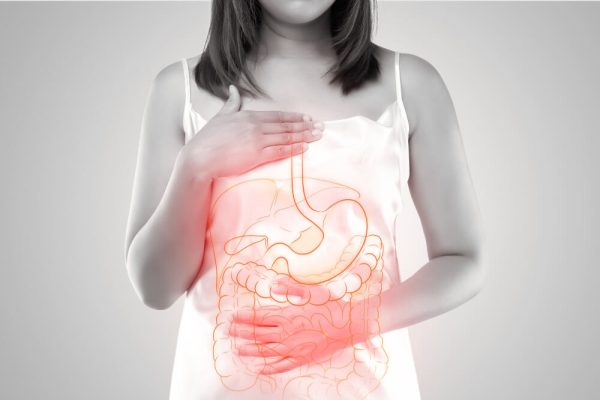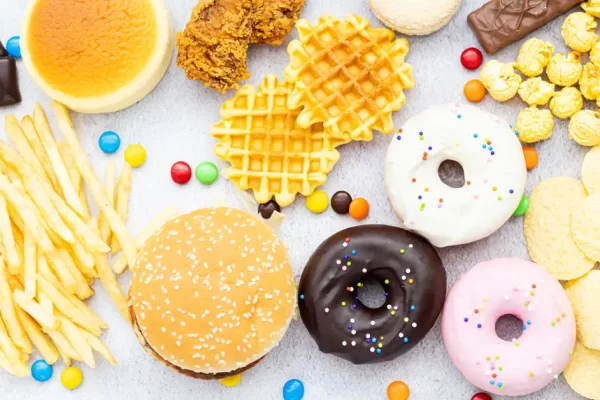Much of the western world has become addicted to sugar. It’s in most products on our shelves. As most of us are well aware, eating too much sugar can lead to all manner of health problems from tooth decay to diabetes to heart disease. That said there are times when eating sugar isn’t a sin. In fact, our body requires a little bit of sugar to provide us with energy to get through the day (although carbs can be just as effective).
If you’re trying to watch your sugar intake, but aren’t sure how often you should be abstaining, here are some of the times when you should and shouldn’t be eating sweet foods.
The Best Times To Eat Sugar:
During a workout
Sugar provides the perfect energy spike needed to keep going when partaking in tough physical activity. If you’re climbing a mountain, going on a long run or simply doing a tough session at the gym, a bar of chocolate or a bottle of soda can help provide that important to keep going. When combined with proteins it can also help to build muscle. This isn’t to say that you should be guzzling on sugary snacks every time you go on a walk or do anything physically exertive – the workout has to be aerobic enough that you eat through your already existing glucose reserves.
When it’s in fruit
Whilst it is possible to eat too much fruit, you’ve got to be eating more than four serving per day to really cause any damage. The sugar found in fruit known as fructose and has the same effect as normal sugar, providing us an energy kick the same way that healthy carbs do. Fruit also contains all manner of other minerals that are important for our bodies. These help to offset the unhealthy effects of sugar that you might get from eating processed food such as a can of coke or a chocolate bar.
When you’re also eating good fats and proteins
Healthy proteins and fats are ones that are natural, as found in peanut butter or fresh fish. They slow down how fast your blood sugar goes up. Trans-fats and unhealthy proteins won’t have the same effect. Finding healthy substitutes could prevent your sugar intake from having such a drastic impact on your body (for example, if you’re making pancakes, use almond butter instead of regular butter).
After a big meal
Eating sugar on an empty stomach is more likely to turn that sugar into fat. Unless you’re also doing exercise, snacking on sugary treats should be avoided. Instead, save sweet foods as a dessert – whether it be an actual dessert or a box of chocolates. With fibres, fats, minerals and proteins already being queued up to be digested, the sugar won’t provide as much of a spike and your body will have more time to know what to do with it.
The Worst Times To Eat Sugar:
With white bread and cereal
Most white bread and cereal already has sugar in it. You can’t taste it because it’s being used to mask the bitter taste of wholemeal flour, which itself offsets the sweetness. Being already carb heavy, our bodies have a hard time then converting this sugar into healthy energy. If you then decide to put Nutella on your toast or sugar on your cereal, you’re only upping the energy spike and it’s likely most of this will simply be converted into fat as your body has no-where else to store it. Eat brown bread and unrefined cereals if you can.
Straight before a cardio workout
Some people may be tempted to give themselves a sugar kick straight before a cardio workout, but quite often this results in an energy spike that doesn’t last, resulting in a crash and then energy fatigue after. This can cause your workout to have less of an effect than in might do otherwise. You’re better off having sugar during your workout when your body is already in the process of burning energy.
When you’ve got diabetes or heart disease
Various illnesses can make eating sugary snacks dangerous. You can’t cut sugar entirely from your diet, but snacking should be definitely reined in if you have diabetes (type 1 or 2) or heart disease.
The major symptom of diabetes is the inability to produce insulin. Insulin helps regulate your sugar levels and essentially decides what to do with the sugar that enters your body. Without insulin, the sugar stays in your body which can result in hyperglycaemia. A diabetic coma can ensue – you’ll generally get warning signs before such as dry mouth, shortness of breath, vomiting and nausea.
When you’ve got a bad stomach
If you’ve got stomach cramps or diarrhoea, sugar is generally not a good option. Because it’s so difficult to digest, it can often be a trigger that results in further inflammation of the gut. This post on The Importance of Gut Health offers a few more foods that should also be avoided, as well as what you should be eating to get your digestive system working properly again. Some people can also be allergic to large amounts of sugar – often alcohol sugars – resulting in IBS. In severe cases where any sugar triggers these digestive problems, it may be worth seeing a GP to find out how you can counter this.
When it’s a man-made sugar
In an attempt to do without sugar, many turn to artificial sweeteners as a substitute. These don’t effect blood sugar or insulin levels and can help people lose weight. However many artificial sweeteners have received a lot of criticism from medical experts, seeing high links to kidney problems and even cancer.
They also don’t work as a substitute for everybody – in some cases they may make a sugar addiction worse. This is because whilst the initial sweetness might satisfy the tastebuds, the body does not get anything out of it and therefore craves sugar even more. This can then cause people to binge on sugar to make up for it, which is altogether worse for your body.
There are lots of artificial sugars out there. Corn syrup is a popular refined sugar found in many salad dressings, lunch meats, ‘zero-sugar’ soft drinks and frozen desserts. Aspartame is a far more controversial man-made sugar that has come under regular attack. It has however been approved by standards agencies and no one component can be proved as being toxic, leading to the continuing debate on the subject.
You don’t have to strictly avoid man-made sugars – the occasional soft drink with aspartame in may not do any lasting damage. However, you should be careful about using these artificial sweeteners wholly as a substitute. Many people with diabetes will turn to these sweeteners so that they continue getting their sweet fix, however it could increase the craving if you’ve already got an unhealthy relationship with sugar. Do your own personal research before making the move to artificial sweeteners so that you can evaluate the risks for yourself.





